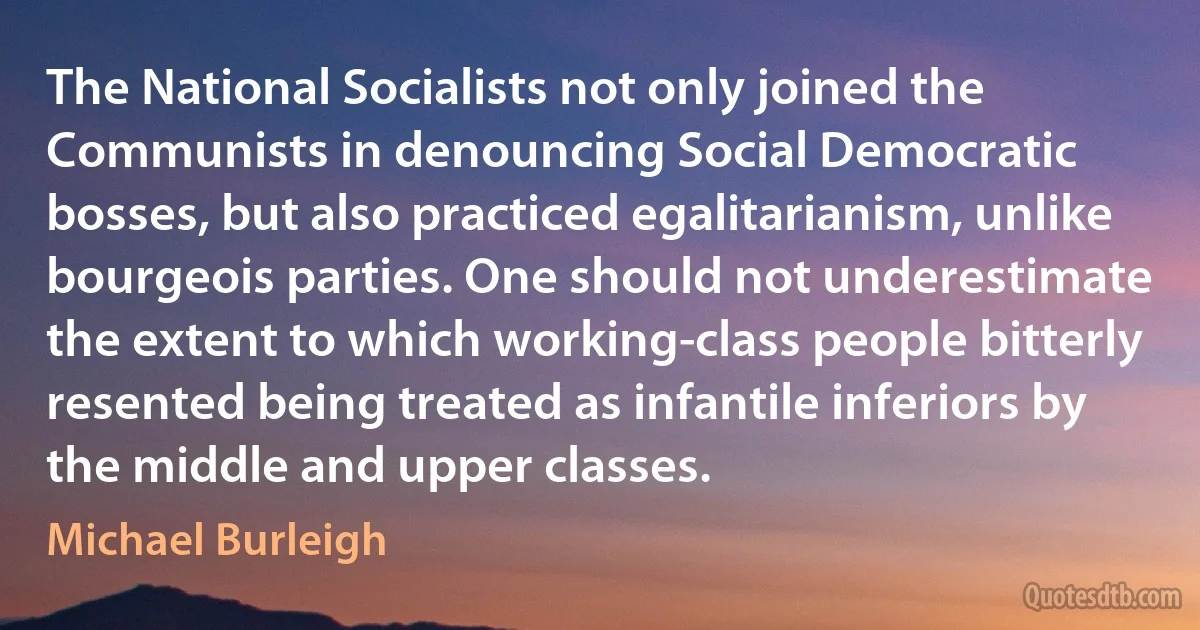Michael Burleigh quotes
Historically, of course, as has been pointed out by such thinkers as Marcel Gauchet and George Weigel Christianity had much to do with the notion of the autonomous, sacrosanct individual, with the preservation of a sphere beyond the state that anticipated civil society, with the notion of elected leadership, and with holding rulers accountable to higher powers.

Michael Burleigh
Although Christianity was an integral aspect of many early socialist movements – and in Britain remains so to this day – in general the Churches arranged themselves on the side of conservatism, partly as a result of their traumatic experience at the hands of democratic mobs in revolutionary France and elsewhere. This alliance of throne and altar duly broke down as the temporal power of the Churches was challenged by the nation states which vied for ultimate human loyalties.

Michael Burleigh
Just as the SS was the most implacable in its persecution of racially unwanted, so it single-mindedly pursued the goal of integrating all Germans on the basis of racial equality. Himmler sincerely meant it when he warned his German SS men to behave respectfully towards their foreign racial comrades.

Michael Burleigh
If faith and hope were integral to National Socialism, so too, surprisingly enough, was charity. This ceased to be an uncomplicated reflection of human altruism, still less something individuals do discreetly for the good of their souls, or to reap tax exemptions and titles. Instead, it became a favoured means of mobilising communal sentimentality, that most underrated, but quintessential, characteristic of Nazi Germany.

Michael Burleigh
The Enabling Law permitted the government to pass budgets and promulgate laws, including those altering the constitution, for four years without parliamentary approval. In democracies, constitutional amendments are especially solemn moments; here they were easier than changing the traffic regulations. None of the guarantees Hitler extended to the Churches or the judiciary in his address to the Reichstag amounted to a hill of beans.

Michael Burleigh
Nazi infiltration of interest groups and also the creation of parallel organizations, which gave the impression of a party listening attentively to particular grievances. It also reflected a totalitarian aspiration, in the sense that Nazis believed that no area of life was to remain unpolitical, and a very modern view that an aggregation of interests would facilitate an eventual political takeover.

Michael Burleigh
Within a remarkable short time totalitarian rule had been reimposed on half a continent using a combination of force and fraud. . . Although they were subjected to relentless assault from state-sponsored atheism, the Christian Churches remained the only licensed sanctuaries from the prevailing world of brutality and lies. Appropriately enough . . . they played an important role in the overthrow of Communism forty years later.

Michael Burleigh
It's nonsense to talk about the war on Islamic terrorism as a clash of civilisations. The distinction is between civilisation and chaos. Whatever people may claim - and the desire to cut through the political processes can be very powerful - there is never any justification for violence.

Michael Burleigh


